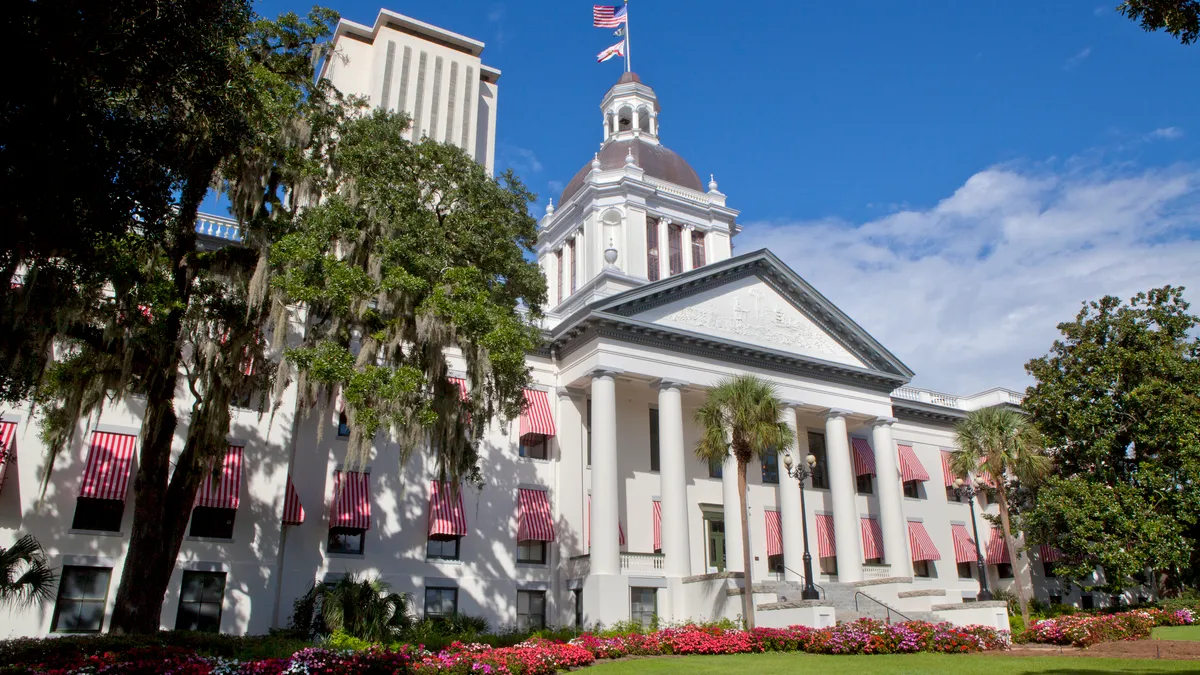Dive Brief:
- A small network of groups and donors have helped drive legislative attacks on diversity offices, tenure, and race and gender-based instructional topics at colleges, according to a new nearly 150-page-report from the American Association of University Professors.
- The report lists 11 conservative and libertarian think tanks, backed by a small group of donors, that have “have participated in this culture war against higher education.
- AAUP traced how policy positions developed and written by those groups have made their way into well over 100 state-level bills banning DEI efforts on campuses or the teaching of critical theory and “divisive concepts.”
Dive Insight:
By AAUP’s count, state lawmakers have introduced more than 150 bills targeting higher ed governance and academic freedom since 2021.
That number includes nearly 100 bills that the group describes as “academic gag orders” seeking to ban teaching of critical race theory and other concepts targeted by conservative activists. Of those, AAUP counted 21 that have been signed into law.
The organization pointed to another seven newly signed laws restricting DEI on campuses, three that weaken tenure (two in Florida and one in Texas), and three that “undermine” accreditation (two in Florida, one in North Carolina).
The AAUP report, authored by Isaac Kamola, director of the organization’s Center for the Defense of Academic Freedom, traces the legislation to a backlash against progressive social movements, including Black Lives Matter and those pushing for LGBTQ+ rights.
Kamola’s report argues that backlash has been advanced by a handful of interconnected think tanks, including Center for Renewing America, Manhattan Institute for Policy Research, American Legislative Exchange Council and the Heritage Foundation, among others. The think tanks, in turn, are funded largely by a relatively small number of multimillion dollar donors.
For instance, the report draws lines between “divisive concepts” bills at the state level and an executive order signed by former President Donald Trump in 2020 that outlawed federal agencies from incorporating “divisive concepts,” “race or sex stereotyping” and “race or sex scapegoating.”
The Trump administration based the executive order on policy input from conservative activist Christopher Rufo, according to past media reports cited by Kamola in the report. Rufo has held positions at multiple think tanks listed in the report and has repeatedly lambasted critical race theory.
At the April annual conference of the Higher Learning Commission, Zach Waymer, government affairs officer at the accreditor, said the effect on higher education from bills targeting DEI, critical race theory and similar issues was still “abstract,” with more impact visible so far on K-12 education.
For their part, conservative think tanks and politicians say they are trying to prevent liberal and radical indoctrination of college students in their fight against DEI and critical race theory instruction.
Despite the attention on teaching concepts such as critical race theory — and attention on the bills trying to prevent their instruction — at least some research shows that few classes at U.S. colleges actually deal substantially with those topics.
A 2023 analysis of 18.7 million syllabi by the nonprofit Open Syllabus found that fewer than 5% of college classes referenced "gender” while just 0.3% referenced "race." And fewer than 1 in 1,000 class syllabi included the terms “critical race theory,” “transgender” or “Marxism.”














